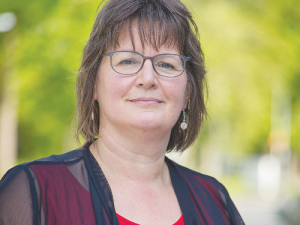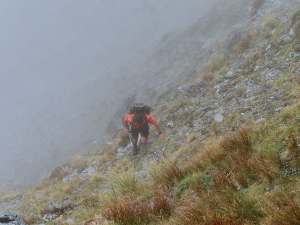A New Zealand expert in leptospirosis says the disease appears to be becoming more ‘tropical’ in the way it is occurring in NZ.
Associate professor Jackie Benschop, a veterinary epidemiologist from Massey University who has researched the disease for 10 years, says over the last three or so years several new trends have begun to emerge.
A new $1.2 million research grant should help explain some of these trends and inform strategies to reduce the impact of lepto.
Benschop says currect data shows reporting of more cases of leptospirosis and while many are in traditional rural areas and meat works there are new risk groups.
“We are seeing subtle increases in groups that aren’t traditionally affected and that includes other occupations and more women,” she told Rural News.
“Last year, 14% of the cases reported were women whereas the previous four-year average for women has been just 7%. Many cases seem to be related to regions which have had flooding and an increase in rodent numbers -- Auckland, Northland and Waikato. This is the message we are getting from medical officers of health and doctors.”
Benschop sees the new funding grant as a game-changer. It will allow them to keep laboratory staff employed and employ a post-doc student to manage the research. The three-year grant gives relatively long secure funding.
“It allows us to take on and develop a PhD student who will investigate key questions including the genetics of the sources of human infection,” Benschop says. “For example, whether strains of Leptospira Ballum from mice or cattle are closely related to those infecting humans will help shed light on the transmission of the disease.”
The team will investigate chronic leptospirosis. She says by enrolling 150 people who have lepto and following them for a long time will enable them to learn more about the persistence of lepto symptoms
Benschop plans to apply for more money for this aspect of the work.
“This issue is largely unexplored in NZ. Case studies show about one in three people have symptoms of lepto that go beyond six months.
“These people may have persistent muscle and eye pain, and fatigue a very long time after they have had that first clinical episode of lepto. This is in addition to when the disease first hits when most lepto cases go to hospital, with about half needing intensive care.”
Benschop says leptospirosis places a huge burden on those affected, their families and the farming sector as a whole.
What’s in the water?
The growth and changes occurring in leptospirosis are a likely result of climate change, especially flooding, Jackie Benschop believes.
Hence more women and others who do not work in meat and farming are contracting the disease. Floods can affect anyone.
However, she knows also that more women are in typical farm work where the disease is prevalent, especially dairy sheds.
“Water is a major factor in the spread of leptospirosis. My message is for people to be very cautious around flood or other water,” she explains. “We have identified lepto in farm water sources such as puddles and standing water in paddocks.”


















